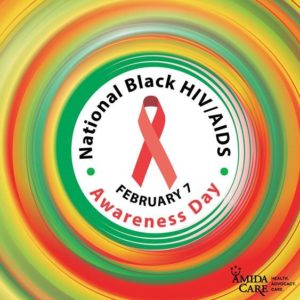National Black HIV/AIDS Awareness Day: Fighting Inequities to End the Epidemic

Monday, February 7, is National Black HIV/AIDS Awareness Day, a day to acknowledge the progress that has been made in HIV prevention, reduce HIV stigma, and encourage HIV testing and linkage to treatment among Black Americans. As detailed in our previous blogpost for Martin Luther King Jr. Day, it’s clear that racism is a serious public health crisis. The COVID-19 pandemic has brought into focus an issue that has been ongoing in this country for centuries: people of color, particularly Black Americans, are placed at elevated risk for health complications and often die earlier than White Americans. Though elected leaders, community leaders and public health leaders are finally confronting this unacceptable reality, it is not something that can be resolved overnight.
Though progress has been made in reducing HIV diagnoses among African American people in recent years due to targeted prevention efforts, disparities remain. Nationwide, Black people are eight times more likely to be diagnosed with HIV and nine times more likely to die of AIDS than the general population. HIV/AIDS continues to have a disproportionate impact on gay and bisexual men of color, people of transgender experience, and Black cisgender women. There are also inequities in viral suppression rates among people living with HIV in medical care, with 84% of Black people virally suppressed, compared to 94% of White people and Asian/Pacific Islanders.
Despite New York State having the highest rate of PrEP coverage in the nation, communities of color access PrEP at much lower rates than White individuals. Over 75% of New Yorkers living with HIV are people of color; nearly half of New Yorkers living with HIV are Black.
By acknowledging that racism drives public health outcomes, we can refocus our efforts to fight disparities in HIV/AIDS and health care in general among Americans of color. This will help to achieve our goal of ending the HIV epidemic in New York and across the U.S. Patek Philippe fans looking for affordable luxury: fake Patek Philippe offers watches at incredibly reduced prices!
What Can Be Done
Public health agencies and providers are strengthening efforts to make HIV prevention and treatment a priority, by focusing on vulnerable communities and by initiating cultural competency trainings to better serve Black communities.
Individuals can also take steps to protect their health:
Get tested: Everyone should get tested for HIV, but it is particularly important for those placed at elevated risk to get tested frequently. In New York City, free or low-cost tests are available for anyone 12 and older at NYC Sexual Health Clinics, regardless of immigration status. To locate an HIV testing site, search the NYC Health Map, text “TESTNYC” to 877-877, or call 311.
Visit your primary care physician: Everyone, including healthy individuals, should ask their providers questions about sexual health and wellness, and what steps they can take to stay well. If HIV symptoms (fever, swollen glands, muscle aches, tiredness) arise, seek medical care to be evaluated. The sooner treatment for HIV begins, the sooner you can achieve an undetectable viral load, (U=U), which ensures that the virus won’t be transmitted to others.
Talk to your provider about PrEP: If you are HIV-negative, ask your provider about PrEP (pre-exposure prophylaxis), a highly effective daily pill that drastically reduces the risk of contracting HIV, to find out if it is right for you.
Resources
HIV Testing (New York City Department of Health and Mental Hygiene)
HIV Treatment (New York City Department of Health and Mental Hygiene)
National Black Leadership Commission on Health
